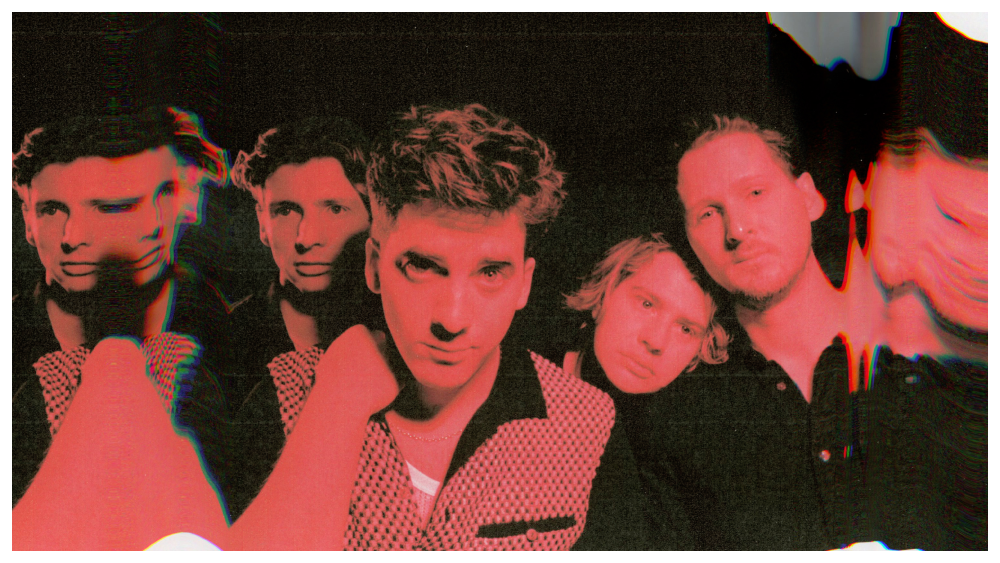Thriller, written by the songwriting genius Rod Temperton?
Temperton is one of the unsung heroes of British songwriting. His earliest successes, as writer and keyboard player for 70s funk outfit, Heatwave, first caught the attention of Quincy Jones, who hired him for an album he was producing for Michael Jackson.
Rock With You, Burn This Disco Out and title track, Off The Wall, were the fruits of the collaboration between the Motown supremo and the Cleethorpes-born songwriter. It was a collaboration that would lead to Jackson’s best selling album, so it was no surprise that Temperton was approached for the follow up.
‘I got to know Michael,’ Temperton tells M. ‘He loves movies, so I came up with the idea that I should write something really theatrical. I’d been really impressed with Michael’s participation in the rhythm section when recording Don’t Stop ‘Til You Get Enough, so I wanted to write something with the same power, but a really dramatic melody structure.’
And so began Temperton’s creation of the track that would come to define Jacko’s career.
‘I remember messing around with bass patterns and drums until I came up with the core bass line that runs through the piece,’ he says. ‘Then I started building chords on top to grow the tune to its climax. I wanted it to build and build - a bit like stretching an elastic band throughout the tune to heighten suspense.’
But making the demo wasn’t easy. ‘I lived in Germany and I was recording with a two-track Revox, so I’d put the drums on one track then play the bass live and bounce back the drums and record that on the other track. I did the same with guitars, keyboards, vocals.’
The result was one of 40 ideas Temperton took to America, but the Thriller tune (working title Starlight) was an instant favourite.
‘In my writing I hear all the musical parts before I ever get to the lyrics. This was clearly such a production number that it had to be the title track - but there were no lyrics and Starlight just wasn’t good enough. It had to be mysterious to match Michael’s evolving persona,’ says Temperton.
‘I’d go back to my hotel every night and start writing titles. One night I came up with Midnight Man. Quincy said I was going in the right direction, but it still wasn’t right. The next morning it came to me - but it was a really crap word to sing: Thriller. It sounded terrible! However, we got Michael to spit it into the microphone a few times and it worked.
‘Once I had the title, the lyrics were written within a couple of hours.’
With the end section requiring dialogue, a friendship between Quincy’s wife Peggy and Vincent Price led to the latter’s involvement.
Quincy suggested that Temperton give Price a script to work from. Time was short and so the two extra verses were written in the taxi from the hotel to the studio. They were finished just as the Hollywood icon’s limo pulled up outside.
‘I told the driver to drive round the back of the studio and I raced in, told the secretary to photocopy what I’d written and was able to walk into the studio and calmly hand a copy to Vincent, who recorded it in two takes. He was just fantastic.’
As for remaining ambitions, his mantra is simple. ‘I love to write. It doesn’t matter if anyone wants it or not. I’ll be doing it until my dying day.’
A version of this article was originally published in issue 31 of M magazine.
Temperton is one of the unsung heroes of British songwriting. His earliest successes, as writer and keyboard player for 70s funk outfit, Heatwave, first caught the attention of Quincy Jones, who hired him for an album he was producing for Michael Jackson.
Rock With You, Burn This Disco Out and title track, Off The Wall, were the fruits of the collaboration between the Motown supremo and the Cleethorpes-born songwriter. It was a collaboration that would lead to Jackson’s best selling album, so it was no surprise that Temperton was approached for the follow up.
‘I got to know Michael,’ Temperton tells M. ‘He loves movies, so I came up with the idea that I should write something really theatrical. I’d been really impressed with Michael’s participation in the rhythm section when recording Don’t Stop ‘Til You Get Enough, so I wanted to write something with the same power, but a really dramatic melody structure.’
And so began Temperton’s creation of the track that would come to define Jacko’s career.
‘I remember messing around with bass patterns and drums until I came up with the core bass line that runs through the piece,’ he says. ‘Then I started building chords on top to grow the tune to its climax. I wanted it to build and build - a bit like stretching an elastic band throughout the tune to heighten suspense.’
But making the demo wasn’t easy. ‘I lived in Germany and I was recording with a two-track Revox, so I’d put the drums on one track then play the bass live and bounce back the drums and record that on the other track. I did the same with guitars, keyboards, vocals.’
The result was one of 40 ideas Temperton took to America, but the Thriller tune (working title Starlight) was an instant favourite.
‘In my writing I hear all the musical parts before I ever get to the lyrics. This was clearly such a production number that it had to be the title track - but there were no lyrics and Starlight just wasn’t good enough. It had to be mysterious to match Michael’s evolving persona,’ says Temperton.
‘I’d go back to my hotel every night and start writing titles. One night I came up with Midnight Man. Quincy said I was going in the right direction, but it still wasn’t right. The next morning it came to me - but it was a really crap word to sing: Thriller. It sounded terrible! However, we got Michael to spit it into the microphone a few times and it worked.
‘Once I had the title, the lyrics were written within a couple of hours.’
With the end section requiring dialogue, a friendship between Quincy’s wife Peggy and Vincent Price led to the latter’s involvement.
Quincy suggested that Temperton give Price a script to work from. Time was short and so the two extra verses were written in the taxi from the hotel to the studio. They were finished just as the Hollywood icon’s limo pulled up outside.
‘I told the driver to drive round the back of the studio and I raced in, told the secretary to photocopy what I’d written and was able to walk into the studio and calmly hand a copy to Vincent, who recorded it in two takes. He was just fantastic.’
As for remaining ambitions, his mantra is simple. ‘I love to write. It doesn’t matter if anyone wants it or not. I’ll be doing it until my dying day.’
A version of this article was originally published in issue 31 of M magazine.




